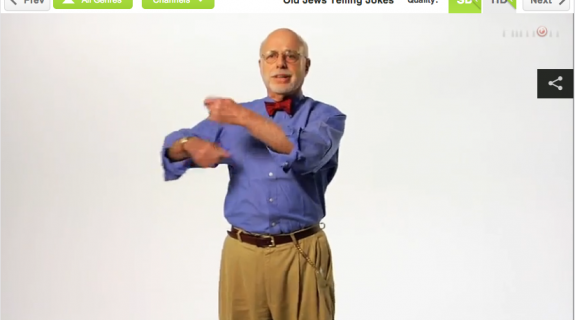On a recent episode of LA radio station KCRW’s monthly television podcast “The Spinoff,” host Michael Schneider of TV Guide Magazine said he’d always looked at Aereo as “a solution in search of a problem.”
He had a point. For all the hullabaloo Aereo kicked up with its streaming app that allowed subscribers to watch live broadcast TV on mobile devices, the issue was never really that people were actually using the thing. Barry Diller’s creation ultimately barely had a chance to put a dent in the $167 billion American television market, largely because, in the era of on-demand, people just aren’t looking to watch live TV on their cell phones. The benefits of cord-cutting go beyond simply not paying for egregious cable packages – it’s being able to control your viewing to watch what you want, when you want and where you want—the TV Everywhere experience. At a certain point, the idea of “live” TV doesn’t even factor into that equation, mobile device or no.
Nay, the biggest dent Aereo made during its brief, fiery run was not in the profits of the Big Four broadcasters but in their morale. The reaction and counter-attack from ABC, CBS, NBC and Fox was so swift and so merciless, it almost seemed personal, and for good reason: Though hardly a threat in and of itself, Aereo was a very public reminder of the threat to come. As Mark Buff, founder and chief executive of HD television antenna company Mohu, recently told The New York Times, “Aereo made people aware that they can get high-definition broadcast television for free without paying for cable.”
In the wake of Aereo’s defeat, expect plenty of startups to vie for a piece of that HD pie, as companies work overtime to put together packages that are both legal and appealing in the new era of viewing. One of those companies, FilmOn, has already been at it for a while, even surviving a legal defeat of its own in 2013 when a federal court in Washington DC ruled in favor of Fox Television Stations, ABC and NBC, granting them a nationwide preliminary injunction in their copyright infringement lawsuit against the Internet-based TV provider.
Since then, as Aereo has grown to consume the lion’s share of broadcasters’ attention, FilmOn has kept on trucking, though its pay service that offers live-streaming TV will almost certainly be moot as well following the Supreme Court’s June 25 ruling. The difference between the two companies, however, is that FilmOn has hundreds of channels in addition to its live broadcast service, including sports, horror, comedy, “Bikini Babe” and many, many more. The revenue from those channels does not rely on subscription fees but on advertising – to watch, viewers must sit though a pre-roll commercial, which can be easily skipped after seven seconds. There’s also a feature called BattleCam.com, a “24x7 live reality television community” where any Internet user can broadcast live using a webcam, with audiences voting whether that user gets to keep airing themselves.
Where Aereo was going for the gusto, culling its live feed from the cream of the crop – the Big Four networks themselves – FilmOn is at the other end of the spectrum, stocking its streaming networks with whatever is cheap enough and arbitrary enough to remain free to viewers whiles still turning a profit. BattleCam especially represents the most vile filth the Internet has to offer – not clown porn, mind you, but idiots hollering into their webcams – and the other channels I explored before quickly giving up were airing the most baffling and unentertaining options imaginable. The FilmOn Sports network, for instance, had a John McEnroe/Jim Courier senior tour tennis match from 2006, while the Comedy network featured a segment titled “Old Jews Telling Jokes.”
Who is watching this stuff? Probably very few people, but when you’re dealing with the cheapest content imaginable, very few is all you really need. The fact that, of these two companies, FilmOn is the one more likely to survive, is not a testament to FilmOn founder Alki David’s ability to get around the legalities of streaming live broadcast television – he hasn’t and he won’t. It’s a testament to an era in which you don’t need premium content to make money. Aereo shot for the moon and missed. But there are plenty of companies setting their sights a lot lower, and it is the cumulative effect of their target strikes that could be devastating to TV networks.
Tags:













































__twocolumncontent.jpg)











